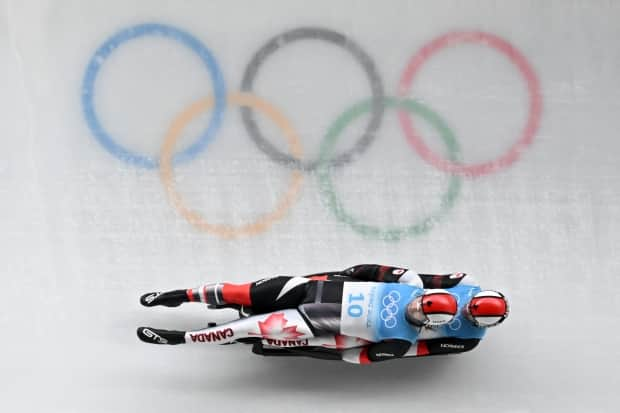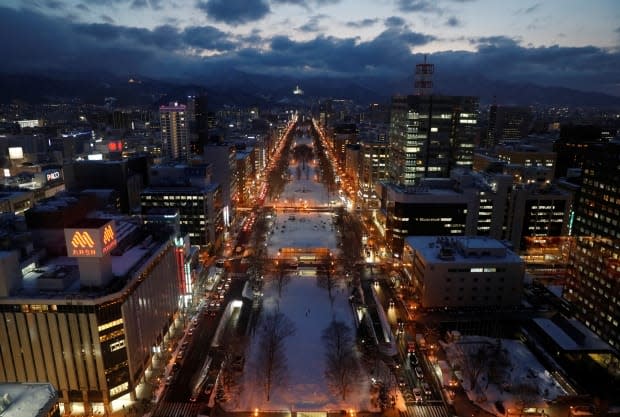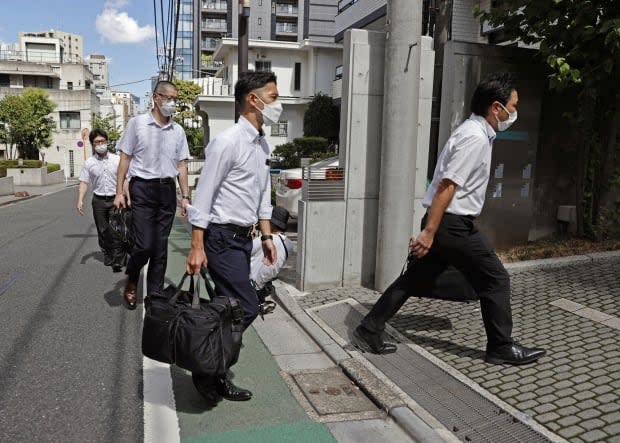IOC struggling to find home for 2030 Winter Olympics — and a Tokyo Games scandal is not helping

Sapporo seems like an ideal place to host the world's top athletes seven years from now.
The city has an Olympic legacy as the first in Asia to stage a Winter Games, in 1972.
Its location on Japan's northern island of Hokkaido is reliably snowy and cold, and packed with ski resorts famous for world-class powder.
And until recently, there appeared to be significant local support for the city's bid to host the Winter Games again in 2030, with polls last year suggesting more than half of residents were in favour of the idea.
But just as Sapporo started officially pushing for the Games, a bribery scandal involving Japan's most recent Olympics in Tokyo is casting a dark shadow on its plans.
In August, prosecutors arrested 78-year-old Haruyuki Takahashi, an executive board member of the Tokyo 2020 Organizing Committee, eventually accusing him of accepting $1.4 million US in bribes from Japanese companies, in return for helping them to be selected as official Games sponsors.
The case has widened into a major corruption and bid-rigging investigation, and some key figures think it could sink Sapporo's shot at landing the Olympics.
"It seems very severe," said Seiko Hashimoto, the former president of Tokyo's organizing committee, responding to reporters' questions in December about the impact of the scandal on the bid.
"Unless it becomes clear that the 2030 Games are completely different from the 2020 Games, it'll be difficult to increase support," Hashimoto said, according to a report in the Yomiuri newspaper.
IOC indefinitely postpones decision on 2030 host
Things could have been so different for Sapporo.
Only a few months ago, it was up against solid candidates for 2030 in Vancouver and Salt Lake City.

But in October, B.C.'s government decided not to support Vancouver's bid, and organizers in Utah had already signalled they would rather host in 2034.
The path looked clear for Japan's northern capital to host the Games, but the International Olympic Committee has pushed the pause button instead.
It was expected to name the 2030 host city at the IOC's General Assembly meeting in October 2023, but it put off the decision without giving a new timeline.
Committee members had long operated on a fixed schedule for choosing host cities, making their pick seven years before the Games.
That won't happen this time, after IOC Olympic Games executive director Christophe Dubi announced a delay for choosing the 2030 host, suggesting the organization's Future Host Commission needs to further examine the challenges the Winter Olympics are facing.
"This will give the commission more time to have a clearer picture and make a sound decision for 2030," said Dubi at an online news conference in December.
The indefinite delay for a host is "simply unprecedented," said Robert Livingstone, a Canadian expert on the Olympic bidding process and founder of the news site GamesBids.com.

"I call what happened a complete reset, because now they [the IOC] have opened it up, anyone could be in now," said Livingstone, who thinks the earliest a host city would be named is at a summit in the summer of 2024.
"It's a new race, and because of that, Sapporo, who potentially would have had it locked, now they're back in the fight."
The IOC has said it's considering a plan to award the 2030 and 2034 Winter Olympics at the same time.
Officials cite climate change concerns for delay
The IOC cited concerns about a changing climate and its impact on future hosts as the main reason for the delay.
The organization is struggling to deal with the inconvenient reality that a smaller pool of cities are bidding for the Winter Olympics, and the effects of a warming climate means fewer places will realistically be capable of hosting them.
Olympic officials say they will analyze the prospect of establishing a rotation between a few permanent host cities to help deal with the uncertainty.
A recent study from the University of Waterloo in Ontario analyzed 21 previous hosts of the Winter Games and suggested only Sapporo would be able to safely and viably stage the Olympics by the end of the century, if greenhouse gas emissions are not dramatically reduced.
But some Olympics-watchers doubt the IOC's move to put off its pick for 2030 is related to climate.
"We would do ourselves a favour to bring some healthy skepticism to that assertion, simply because they've been talking about the importance of environmental sustainability since the 1990s," said Jules Boykoff, a vocal critic of the IOC and a political science professor at Pacific University in Portland, Ore.

Boykoff believes climate change has been "a secondary, if not tertiary concern" to the IOC, and thinks the delay is "a buying-time kind of endeavour" for Sapporo's bid, while the bribery scandal continues to generate negative headlines in Japan.
"Maybe if they wait it out long enough, then there might even be some convictions for some of these people. Then [the IOC] can just wag a finger at those particular individuals and not treat it like it's a structural problem with the Olympics," said Boykoff.
The IOC 'forgets' about scandals
The scandal could also renew opposition to the Olympics within Japan, which is less than two years removed from the much-maligned Tokyo Games, controversially held without spectators in the middle of the pandemic.
Some are now questioning whether Sapporo should ditch the plan to host another Games.
On Dec. 20, the City of Sapporo and the Japanese Olympic Committee bowed to the public pressure, announcing they are temporarily pausing the active promotion of the bid.
"The situation has changed drastically. We need to reaffirm the will of the people," Sapporo Mayor Katsuhiro Akimoto told a media conference, according to the Yomiuri newspaper.
The report said the mayor pledged to conduct another survey to determine if residents support hosting the Games.
Nao Masumoto, a visiting professor of Olympic studies at Tokyo Metropolitan University, thinks the IOC still wants to put the 2030 Games in Sapporo and is waiting until the problems "calm down."
He says local support for the plan has diminished since the scandal emerged, and thinks it was a "big mistake" that Sapporo's municipal government decided not to hold a public referendum on its bid.
"It's very important to have democratic decision-making [for Olympic bids]," said Masumoto.
But he believes things could still turn around, if another story replaces the corruption scandal in Japan's news cycle, and people start to forget.
"The IOC forgets, too," he laughed.
With files from The Associated Press and Reuters


